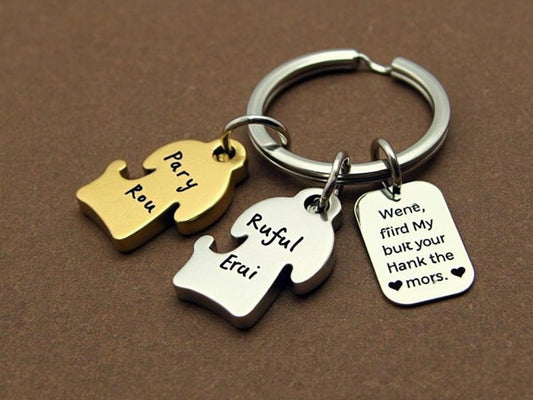The invisible threads of DNA bind us to our pets in ways science is only beginning to understand. Recent twin studies reveal that our genetic makeup may predispose us to pet ownership, with heritability rates exceeding 50% for dog companionship—suggesting the bond we feel with our furry friends might be written in our genes.
Key Takeaways
- Twin studies show 57% heritability for female dog ownership and 51% for male dog ownership
- Identical twins show 30-40% shared pet ownership patterns compared to only 25% for fraternal twins, highlighting genetic influence
- Women, partnered individuals, and those with higher education demonstrate stronger correlations with pet ownership
- Environmental factors still play a crucial role alongside genetics in determining who becomes a pet parent
- Approximately 45.5% of US households own dogs, with dog owners spending more on veterinary care than cat owners
The Genetic Blueprint of Pet Companionship
I've always wondered why some people are drawn to pets while others aren't. As it turns out, this might not be just a matter of preference – it's partially coded in our DNA. Large-scale twin studies involving over 35,000 participants have revealed something fascinating: genetic factors account for 57% of the likelihood that women will own dogs and 51% for men. This doesn't mean our genes force us to adopt pets, but rather that they influence personality traits that make us more open to animal companionship.
This research explains why some families seem to have generations of devoted pet lovers while others don't share the same enthusiasm. It's like finding out that your obsession with #TwinningThursday photos of you and your furry friend might actually be part of your genetic makeup! For Pokemon fans looking for uncommon goods ideas, brands like Supetmon that offer custom Pokemon gifts tap into this deep connection we share with our animal companions.

Twin Studies: The Scientific Evidence
The most compelling evidence for genetic influence on pet ownership comes from comparing identical and fraternal twins. Identical twins, who share 100% of their DNA, show 30-40% similarity in pet ownership patterns. Fraternal twins, who share only about 50% of their DNA (like regular siblings), show approximately 25% similarity. This difference may seem small, but statistically, it's significant enough to confirm genetic influence.
When researchers control for variables like household environment, the genetic connection becomes even clearer. These findings don't just apply to casual pet ownership – they extend to how deeply we bond with our animals and even the care routines we establish for them. So next time you're celebrating Twinning Thursday with matching outfits with your dog, remember that your bond goes deeper than just fashion choices!
Demographics: Who's Most Likely to Own Pets?
Beyond genetics, certain demographic factors consistently correlate with pet ownership. Women are more likely than men to own pets, especially cats. People in committed relationships also show higher rates of pet ownership, possibly because they have more stable living situations and shared resources for pet care.
Education level also plays a role – those with higher education tend to have higher rates of pet ownership. These patterns hold true across multiple studies and cultures, suggesting they reflect deep-seated social and psychological factors that interact with our genetic predispositions. Match your mood, match your dog—without the cringe sweaters by understanding the deeper connections that draw you to your pet in the first place.
Here are the most common demographic factors associated with pet ownership:
- Gender: Women show higher ownership rates, especially for cats
- Relationship status: Partnered individuals have higher ownership rates
- Education level: Higher education correlates with increased ownership
- Living situation: Stable housing increases likelihood of pet ownership
Beyond Genetics: Environmental Influences
While genetics play a surprisingly large role, environment still matters tremendously. Growing up with pets significantly increases your chances of owning them as an adult. Family attitudes, cultural norms, and even geographical location all shape our relationship with animals.
The twin studies show that if one twin owns a pet, the other is more likely to as well – but this correlation is stronger in identical twins, highlighting the genetic component. For many people, pets become lifelong companions whose influence extends throughout our lives, creating patterns that might look like family traditions but have deeper biological roots.
The Economics of Pet Ownership
The financial commitment to pets varies significantly between species and reflects our genetic predispositions. About 45.5% of US households own dogs, while 32.1% own cats. Dog owners spend approximately $580 annually on veterinary care, while cat owners spend about $433.
These economic patterns might seem purely practical, but they also reflect the strength of our bonds. People genetically predisposed to deep animal connections often prioritize pet care in their budgets. For many, custom anime gifts that celebrate this bond aren't just novelties – they're expressions of a connection that runs in their DNA. The #MatchMyPet trend reflects this willingness to celebrate and invest in our animal relationships.
Mourning and Attachment: The Deepest Connections
Perhaps the most profound evidence of our genetic connection to pets comes in how we grieve their loss. Studies show that many people experience pet loss as deeply as human loss, with mourning periods that can last months or years. This depth of attachment isn't universal – it varies between individuals and appears to have genetic components.
For those with strong genetic predispositions to animal bonding, coping with pet loss can be an intense journey. The #CoupleGoals some feel with their pets isn't just a social media trend but a reflection of authentic emotional bonds that science is only beginning to understand.
Embracing Your Genetic Pet Connection
Understanding the genetic components of our pet relationships doesn't diminish their value – it helps explain their depth and persistence. Whether you're drawn to dogs, cats, or more exotic companions, your preferences likely reflect a complex interplay between nature and nurture.
Next time you post that perfect #TwinningThursday photo with your pet, know that your connection runs deeper than fashion. The joy you find in custom Pokémon gifts or the comfort you feel in your pet's presence may be partially written in your DNA – a biological inheritance as meaningful as your eye color or height. By understanding these connections, we can honor and strengthen the unique bonds we share with our animal companions.




